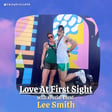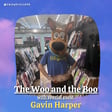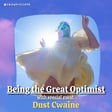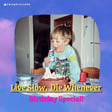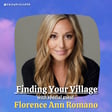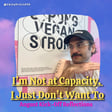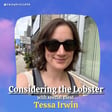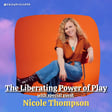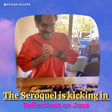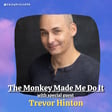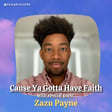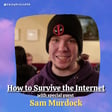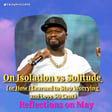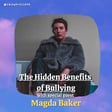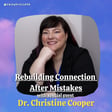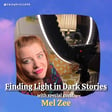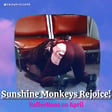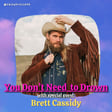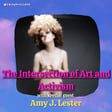
Refocusing Jurassic Park's Feminist Lens (with special guest Hannah McGregor)
This week on a very special episode of "Friendless", join host James Avramenko as he sits down with the insightful Hannah McGregor, author and co-host of the popular podcast "Material Girls." Hannah, who penned "Clever Girl," shares her feminist analysis of Jurassic Park, diving into her unique perspective on the beloved classic.
In this in-depth conversation, Hannah opens up about her personal journey moving to Vancouver and the challenges she faced in building a community from scratch amidst social anxiety and panic attacks. James and Hannah also explore their preferences for horror genres, discuss their favourite childhood places, and the ethical complexities of zoos and museums.
Listeners will gain insight into Hannah’s ideal weekend relaxation plans, a humorous take on velociraptors in human suits, and the importance of fostering community and friendship in meaningful ways. The episode is brimming with humor, intellectual discourse, and practical advice on managing social anxiety, self-criticism, and the significance of personalized gestures in friendships.
Discover Hannah’s thoughts on friendship dynamics, and the valuable concept of emotional capacity in support networks. This episode is a rich blend of academic reflection and light-hearted banter, perfect for those looking to understand the nuances of community building and feminist perspectives on popular media.
Don’t miss Hannah’s professional insights and James' enthusiastic recommendation of "Clever Girl." Tune in to hear their candid discussion on vulnerability, societal pressures, and the transformative power of analytic essays. Be sure to check the show notes for links to Hannah’s work and other featured artists.
Links:
- Follow Hannah McGregor on Instagram: @hkpmcgregor
- Purchase "Clever Girl" (Not from Amazon)
- Learn more about Hannah's work
Sign up for the Friendless Substack newsletter for more insights and updates!
Read "Hey, sorry I missed you"
Support the show, Buy Me A Coffee!!
Create your podcast today! #madeonzencastr
#FriendlessPodcast #HannahMcGregor #CleverGirl #FeministAnalysis #CommunityBuilding #EmotionalCapacity

